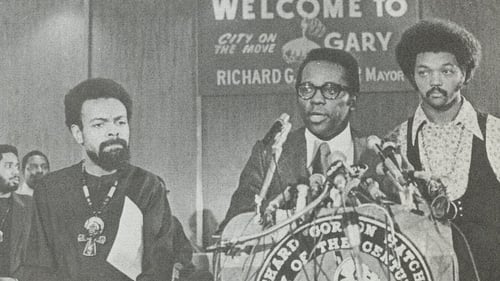
Self
Narrated by actress Alfre Woodard, this trenchant, eye-opening doc traces the radical civil rights leader’s life from his tumultuous childhood, through his rise in the ranks of the Nation of Islam, to his 1965 assassination.

The Black Audio Film Collective’s seventh film envisioned the death and life of the African American revolutionary as a seven part study in iconography as narrated by novelist Toni Cade Bambara and actor Giancarlo Espesito. The stylized tableaux vivants that memorialise Malcolm’s life referenced the early 20th century funeral photography of James Van der Zee’s The Harlem Book of the Dead and the elemental static cinematography of Sergei Paradjanov’s The Colour of Pomegranates.

Self (archive footage) (uncredited)
Malcolm Little (1925–1965) nació en Omaha (Nebraska). Su padre, ministro baptista, murió siendo él niño, y su madre acabó en un psiquiátrico cuando el Ku Klux Klan incendió su casa. Después de ser rechazado por el ejército, cayó en la delincuencia y fue a parar a la cárcel. Allí se convirtió al Islam y cambió radicalmente su vida, convirtiéndose pronto en un carismático líder del movimiento de liberación de la comunidad negra norteamericana.

Self
A report on the National Black Political Convention held in Gary, Indiana, in 1972, a historic event that gathered Black voices from across the political spectrum, among them Jesse Jackson, Dick Gregory, Coretta Scott King, Richard Hatcher, Amiri Baraka, Charles Diggs, and H. Carl McCall.

Herself
The 1960s black student movement at Duke University evolved into a separate institution to study and engage with the history and culture of the African diaspora. This film was produced for the National Educational Television (WNET) Black Journal.



